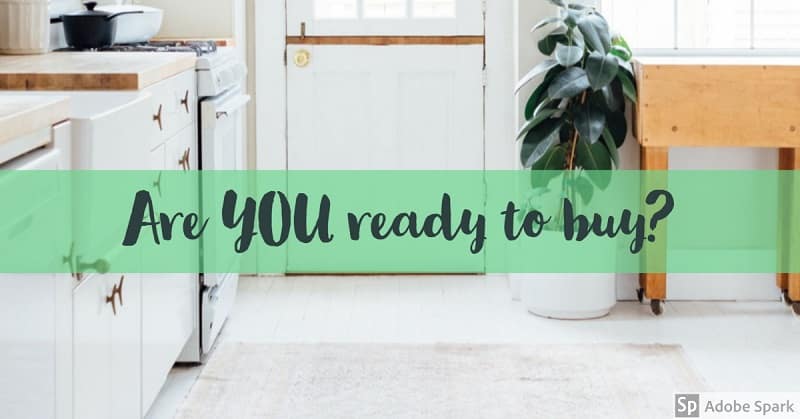So, how do you know if you’re ready to move from an apartment to a house? Maybe you’ve passed your step tracker hauling groceries up flights of stairs, or you simply just want the extra space for your belongings. Ask yourself these questions below to get a sense of where you’re at—or what you have to do to transition easily into home-buying mode once the time is right.
Can you afford to buy a home?
For starters, let’s talk money. Buying a home is a hefty purchase, probably the largest you’ll ever make. So, you’ll need a down payment (typically recommended to be 20% of the home’s purchase price) and steady income (i.e., a job) to pay your mortgage.
There are other costs also associated with homeownership:
- Closing costs (typically 2% to 5% of the home’s purchase price)
- Home insurance (cost varies by state)
- Maintenance
- Utilities
- Budget for unseen repairs and emergencies

While renting might seem more economical than owning at first glance, that’s not always the case; our rent vs. buy calculator can help you compare the costs. You might be surprised by the results!
Another good first step to figuring out whether you can afford a house is to enter your salary and town of residence into a home affordability calculator, which will show you how much you’d pay for a mortgage on a typical house in that area. Or talk with a loan officer or your local realtor about whether you would qualify for a mortgage, and how much you can spend comfortably. Such consultations are free, and will give you a concrete dollars-and-cents sense of where you stand.
Are you settled in your job?
Your job situation is not only important in terms of income to buy a home, but also whether you’re happy where you work and plan to stay put. Because once you own a home, your career prospects do narrow somewhat, purely because a home anchors you to one area.
“Homeowners tend to have fewer job opportunities compared to renters, since renters can easily accept a job in another city or state,” says Reid Breitman, managing partner at Kuzyk Law, in Los Angeles. “A homeowner may decline such an opportunity because they don’t want to go through the cost, time, and expense of selling their home. So, it may be better to wait to purchase a house until after you’re firmly established in your employment situation.”
Do you know where you want to live?
Since moving once you own a home is not as easy as just packing your bags (which, let’s face it, is a hassle in itself), you really need to make sure you’re picking a home in an area where you’ll be happy.
“It’s not easy to just sell a house and move to a new one if intolerable neighborhood issues come up, since the transaction cost to sell—up to 8% to 10% of the sale price for brokerage fees, escrow, title, and other costs of sale—would be relatively very expensive,” Breitman says. “So you need to really scope out the neighborhood.”
When in doubt, try renting for a few months to make sure you like the area before you start shopping for a home to own for good.
How much home maintenance are you willing to tackle?
If you love the challenge of fixing a leaky faucet and figuring out which shrubs will flourish in your yard, homeownership may be right up your alley. But if the idea of mowing a lawn or messing with the HVAC makes you depressed, then you may want to stick with renting, which gives you a roof over your head without the work.
“Apartment renters don’t have many home-related responsibilities,” explains Brian Davis, director of SparkRental, in Baltimore. “If something breaks, they call the landlord. Often, they don’t even need to worry about setting up utilities; they either come with the building, or the process is merely changing the name on an existing utility account.”
Living in a house you own is a different story. There’s no landlord to call if anything goes wrong; it’s all up to you. So you have to be either adept as a handyman, or willing to find and pay someone else to do such tasks. Or else consider buying a condo or co-op, where the lawns and public areas around your home are maintained by hired help.
Bottom line: Owning a home is a big commitment. So before you jump into it, you should have confidence that it works for your circumstances.
“No one should feel like they have to follow a template, that by reaching a certain age or having a certain number of children they need a house in the suburbs,” Davis says. “So forget the clichés and movies, and decide based on you.”
Contact one of our experienced agents at Bardell Real Estate and we are sure to walk you through the buying process. Even if this is your first-time purchase, our agents will make sure you have the knowledge you need to make an educated decision about your investment!
Source: Realtor.com
